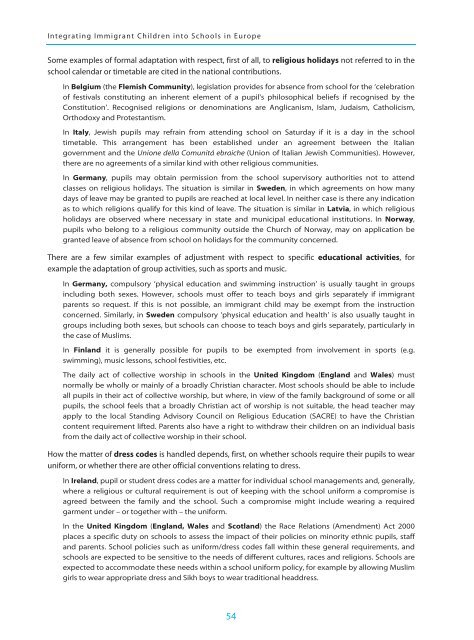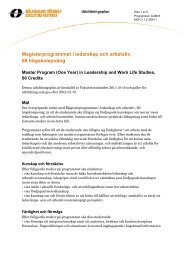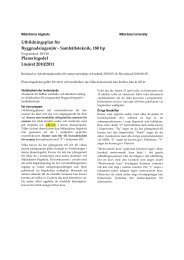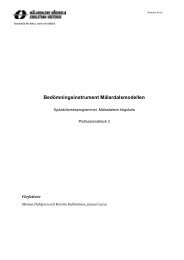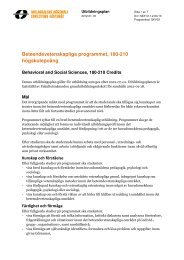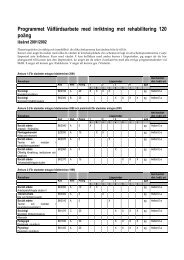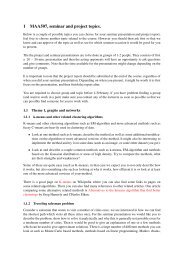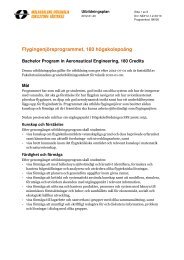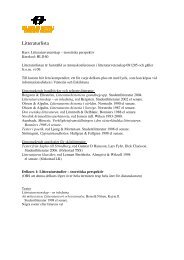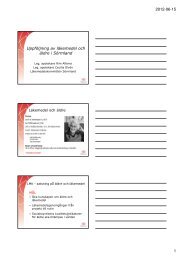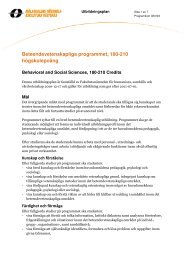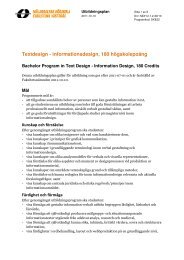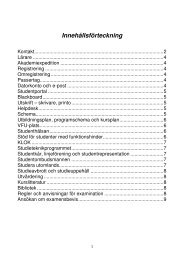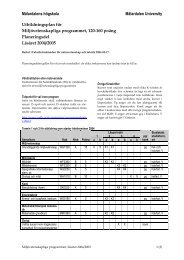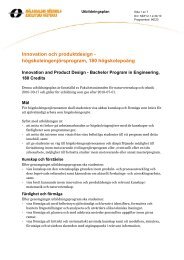Integrating Immigrant Children into Schools in Europe
Integrating Immigrant Children into Schools in Europe
Integrating Immigrant Children into Schools in Europe
You also want an ePaper? Increase the reach of your titles
YUMPU automatically turns print PDFs into web optimized ePapers that Google loves.
<strong>Integrat<strong>in</strong>g</strong> <strong>Immigrant</strong> <strong>Children</strong> <strong><strong>in</strong>to</strong> <strong>Schools</strong> <strong>in</strong> <strong>Europe</strong>Some examples of formal adaptation with respect, first of all, to religious holidays not referred to <strong>in</strong> theschool calendar or timetable are cited <strong>in</strong> the national contributions.In Belgium (the Flemish Community), legislation provides for absence from school for the ‘celebrationof festivals constitut<strong>in</strong>g an <strong>in</strong>herent element of a pupil's philosophical beliefs if recognised by theConstitution’. Recognised religions or denom<strong>in</strong>ations are Anglicanism, Islam, Judaism, Catholicism,Orthodoxy and Protestantism.In Italy, Jewish pupils may refra<strong>in</strong> from attend<strong>in</strong>g school on Saturday if it is a day <strong>in</strong> the schooltimetable. This arrangement has been established under an agreement between the Italiangovernment and the Unione della Comunitá ebraiche (Union of Italian Jewish Communities). However,there are no agreements of a similar k<strong>in</strong>d with other religious communities.In Germany, pupils may obta<strong>in</strong> permission from the school supervisory authorities not to attendclasses on religious holidays. The situation is similar <strong>in</strong> Sweden, <strong>in</strong> which agreements on how manydays of leave may be granted to pupils are reached at local level. In neither case is there any <strong>in</strong>dicationas to which religions qualify for this k<strong>in</strong>d of leave. The situation is similar <strong>in</strong> Latvia, <strong>in</strong> which religiousholidays are observed where necessary <strong>in</strong> state and municipal educational <strong>in</strong>stitutions. In Norway,pupils who belong to a religious community outside the Church of Norway, may on application begranted leave of absence from school on holidays for the community concerned.There are a few similar examples of adjustment with respect to specific educational activities, forexample the adaptation of group activities, such as sports and music.In Germany, compulsory ‘physical education and swimm<strong>in</strong>g <strong>in</strong>struction’ is usually taught <strong>in</strong> groups<strong>in</strong>clud<strong>in</strong>g both sexes. However, schools must offer to teach boys and girls separately if immigrantparents so request. If this is not possible, an immigrant child may be exempt from the <strong>in</strong>structionconcerned. Similarly, <strong>in</strong> Sweden compulsory ‘physical education and health’ is also usually taught <strong>in</strong>groups <strong>in</strong>clud<strong>in</strong>g both sexes, but schools can choose to teach boys and girls separately, particularly <strong>in</strong>the case of Muslims.In F<strong>in</strong>land it is generally possible for pupils to be exempted from <strong>in</strong>volvement <strong>in</strong> sports (e.g.swimm<strong>in</strong>g), music lessons, school festivities, etc.The daily act of collective worship <strong>in</strong> schools <strong>in</strong> the United K<strong>in</strong>gdom (England and Wales) mustnormally be wholly or ma<strong>in</strong>ly of a broadly Christian character. Most schools should be able to <strong>in</strong>cludeall pupils <strong>in</strong> their act of collective worship, but where, <strong>in</strong> view of the family background of some or allpupils, the school feels that a broadly Christian act of worship is not suitable, the head teacher mayapply to the local Stand<strong>in</strong>g Advisory Council on Religious Education (SACRE) to have the Christiancontent requirement lifted. Parents also have a right to withdraw their children on an <strong>in</strong>dividual basisfrom the daily act of collective worship <strong>in</strong> their school.How the matter of dress codes is handled depends, first, on whether schools require their pupils to wearuniform, or whether there are other official conventions relat<strong>in</strong>g to dress.In Ireland, pupil or student dress codes are a matter for <strong>in</strong>dividual school managements and, generally,where a religious or cultural requirement is out of keep<strong>in</strong>g with the school uniform a compromise isagreed between the family and the school. Such a compromise might <strong>in</strong>clude wear<strong>in</strong>g a requiredgarment under – or together with – the uniform.In the United K<strong>in</strong>gdom (England, Wales and Scotland) the Race Relations (Amendment) Act 2000places a specific duty on schools to assess the impact of their policies on m<strong>in</strong>ority ethnic pupils, staffand parents. School policies such as uniform/dress codes fall with<strong>in</strong> these general requirements, andschools are expected to be sensitive to the needs of different cultures, races and religions. <strong>Schools</strong> areexpected to accommodate these needs with<strong>in</strong> a school uniform policy, for example by allow<strong>in</strong>g Muslimgirls to wear appropriate dress and Sikh boys to wear traditional headdress.54


